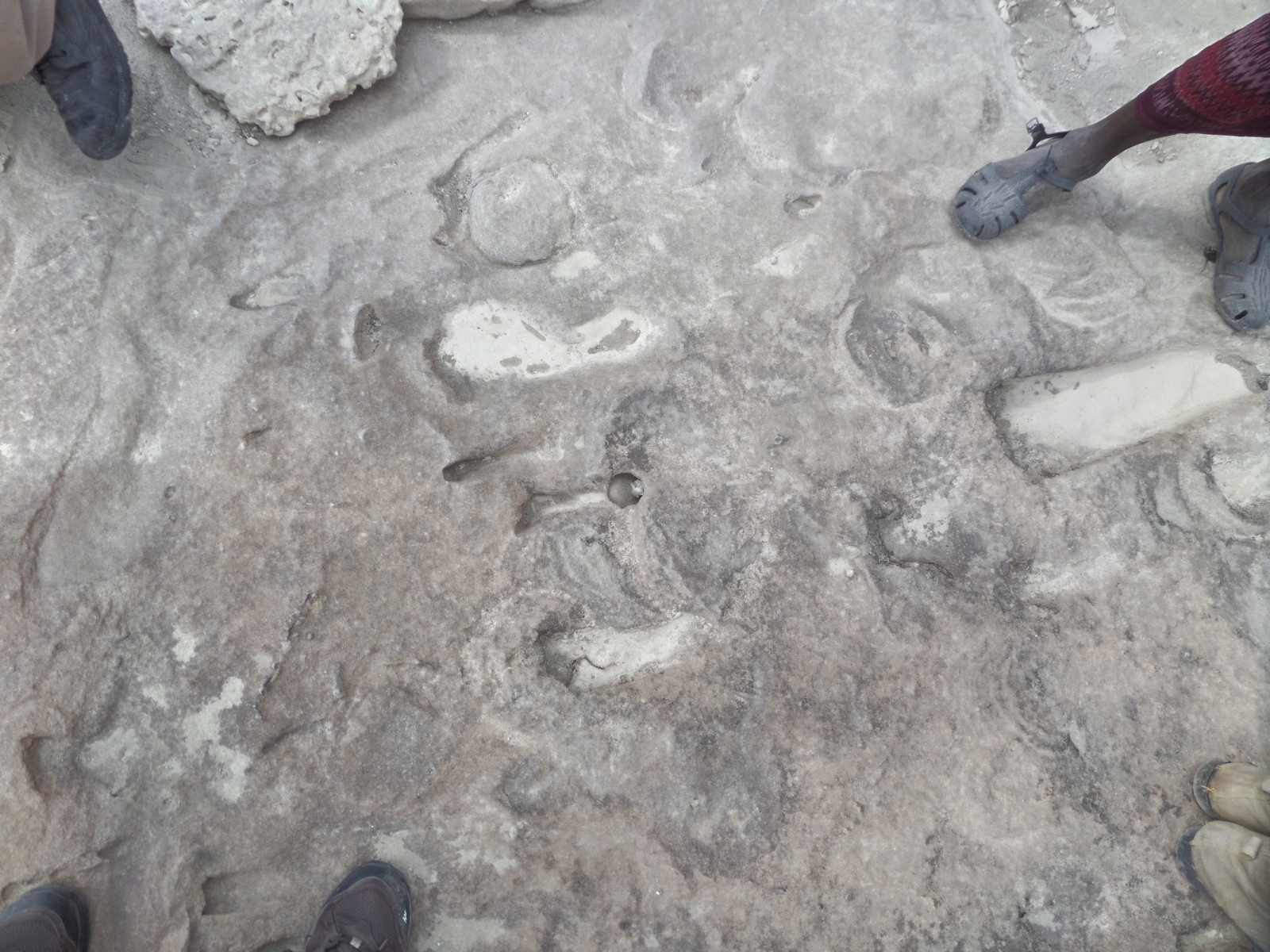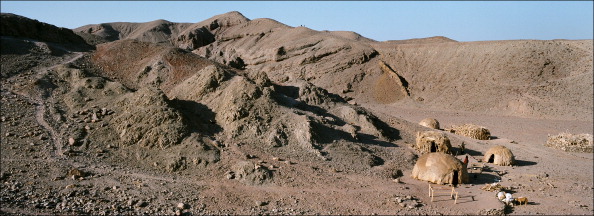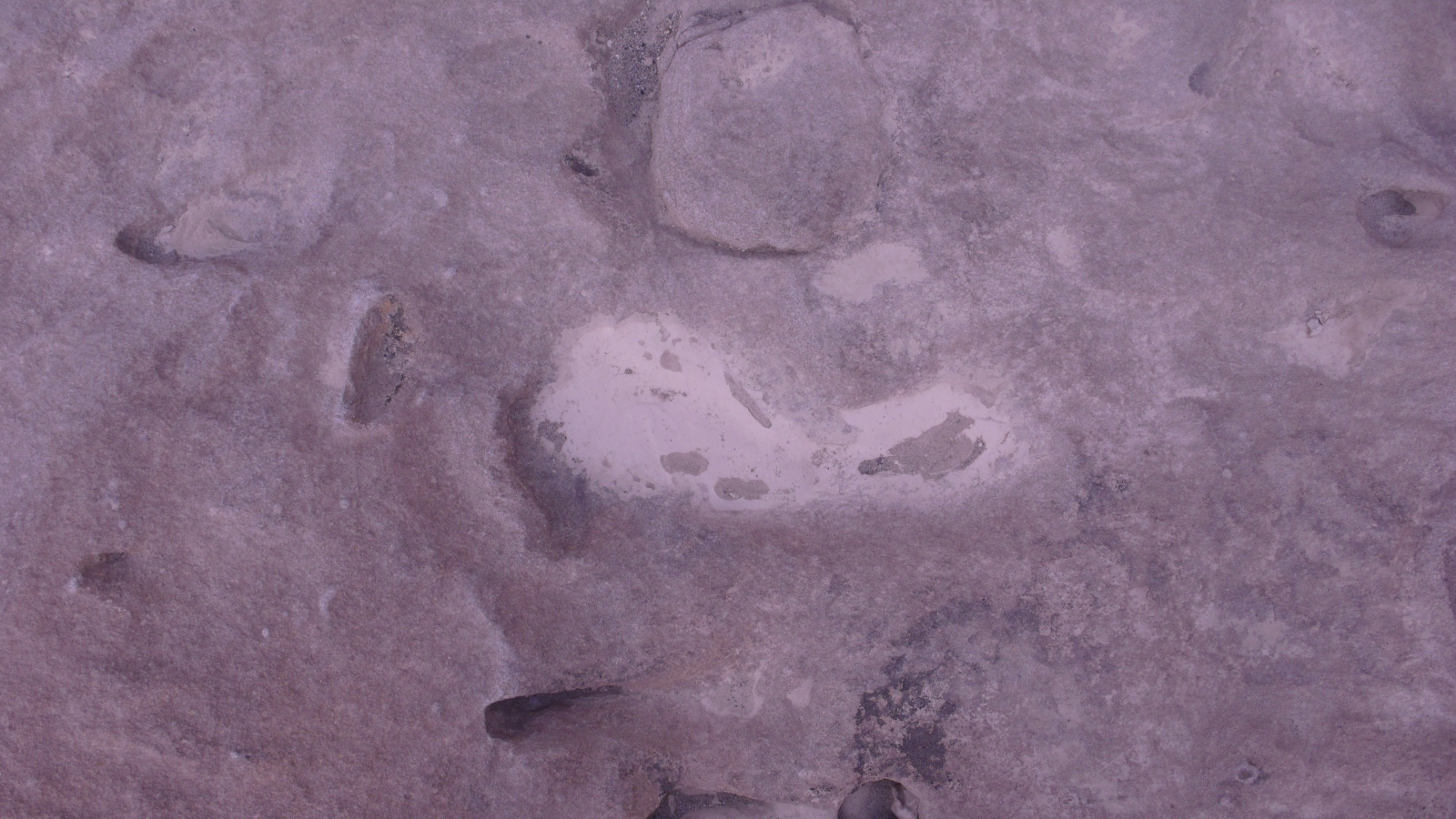 The footprints were found by the team's local guide in sediment.Courtesy of Pr Coppa
The footprints were found by the team's local guide in sediment.Courtesy of Pr CoppaThe discovery of the oldest Homo erectus footprints in the world, alongside fragments of fossilised skulls, could advance palaeontologists' knowledge of the stature and anatomy of modern man's closest ancestors. The fossils were unearthed in a region known as Buia in the heart of the Semi-arid Danakil Depression in eastern Eritrea, during an expedition led by researchers from the Italian university of Sapienza and the National Museum of Eritrea.
Their latest research started in late 2015, in an area constituted by many geological layers spanning several hundred thousand years. One day, the team's local guide made a surprising discovery: he came across a 26-square-metre foot-printed sediment surface.
Due to their ephemeral nature in soft sediments, footprints tend to be altered and eroded very quickly, so their preservation is an exceptional phenomenon. Analysing the different sediment layers, researchers found out the prints were approximately 800 000 years old. At this time, the only member of the human family tree to live in the region was Homo erectus.
The researchers thus say the prints are the oldest known to belong to Homo erectus and this is a rare occasion to get a glimpse of the lives of Homo erectus individuals in motion in their ecosystem hundreds of thousand years ago.
 The footprints were found in the Danakil desert, EritreaStephan Gladieu/Getty Images
The footprints were found in the Danakil desert, EritreaStephan Gladieu/Getty Images
The sediments and the shape of the prints as well as their location alongside an extinct species of antelopes' footprints suggest the environment in which these early humans lived in was very different that it is today. Instead of a desert, it would probably have been a lakeside buffered by grassland.
Significance of the footprints
The discovery is significant because ancient fossilised footprints are very rare, but also because it has the potential to improve scientists' understanding of Homo erectus.
"The importance of the footprints is due to their extreme rarity. In Africa, archaeological sites with human fossils in Africa are not very numerous, but are still in the hundreds. The footprints of our ancestors however have so far only come from three locations but they can provide us with information that is not deductible by skeletal or dental fossils", lead researcher Alfredo Coppa told IBTimes UK.
 Probable adult footprints of Homo erectusCourtesy of Pr Coppa
Probable adult footprints of Homo erectusCourtesy of Pr Coppa
Here, the footprints appear very similar to that of modern men. They show details of the toes, and the foot shape includes a prominent arch and big toe in line with the others - features that make human feet distinctive and efficient when walking and running.
A more detailed study of these footprints will now take place and may reveal unique information about foot anatomy, stature, body mass, and locomotor biomechanics - including gait and walking speed of H erectus. Scientists may gain critical clues to better understand how hominins behaved and fared in their environment some 800 000 years ago.
Significance of the skulls fragments
In addition to the footprints, the skull fragments offer useful perspectives on the evolution of Homo erectus over thousands of years.
The Pleistocene (between around 2.588 million to 11,700 years) era represents a period of major transition in human evolution, when some of our primitive H erectus ancestors evolved into species with larger brains and more modern bodies.
 Detail of the Homo erectus footprints found at the site.Courtesy of Pr Coppa
Detail of the Homo erectus footprints found at the site.Courtesy of Pr Coppa
The problem is human fossils from that time are fragmentary between 1.3 and 0.5 million years ago, especially when it comes to the postcranial area of the skull. These new fossils in Buia could therefore help to fill the gap.
The Buia fossils have an intriguing blend of primitive and more modern characteristics, combining more primitive H. erectus traits with an increase in brain size and some modern aspects of hip structure.
"In this way, the Buia fossils link H erectus with anatomy seen in later species such as H. heidelbergensis", the authors explain. The fossils and the prints thus add a new piece to the puzzle of human evolution.






































